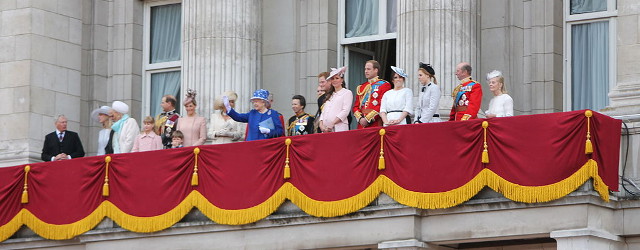Reinventing the Royals shows how the Windsors overcame Fleet Street, but the public are the real losers.
Perhaps the most telling detail of this two-part documentary on the contest between press and monarchy is not to be found in its contents, but rather its broadcasting dates.
The airing last month followed a brief delay from a planned release on January 4th, with Windsor lawyers holding the show up over fears it would penetrate too deeply through what Tom Nairn termed The Enchanted Glass. As the documentary goes on to demonstrate, this is not the first time the royals have quashed inspection of their role in British affairs, which makes its director Steve Hewlett’s contention that Harry and William have had to endure “truly extraordinary scrutiny” of their family all the more baffling.
It is certainly true that Britons take an voyeuristic interest in the Windsors, with the readers of the tabloid and broadsheet alike happy to drool over the drunken misbehaviour of Harry and cutesy mugshots of George. This is coupled with devotion to the royals so fawning, mawkish and drab it could serve as a convincing polemic against universal suffrage, such is the vast acreage of British stupidity uncovered when people are asked their opinion of Diana Spencer.
Yet that so many are enticed by the prospect of greater privacy for the monarchy shows the success of the two spin doctors whose work Hewlett tracks. Starting with Mark “Blackadder”* Bolland’s recasting of Charles and ending with Paddy Harverson’s work on the prince’s two sons, the series is an entertaining if uncritical recap of the Windsor’s press relations throughout the last two decades.
So far so BBC, you might think. But the press’s greatest failing is not to be found when the paps are chasing Kate Middleton down the road (whatever the Torygraph might think). Rather it is the fact the press has been so cowed over the years that, in the words of Tim Ewart of ITV News, the Windsors can now get away with not even speaking to the journalists, entirely setting the terms of how they are covered.
That Charles, William, George and by extension Kate Middleton are all in line to take up the role as the constitutional head of Britain makes this a problem. The Windsors may be forbade from using their absolute power, but they have influence aplenty, which any Fleet Street proprietor could tell you is not a bad substitute.
At a time when Britain is staring another hung parliament in the face the opinions and habits of those who usher the next government into position are not trifling. Their role in diplomatic concerns, which many point as a strong point of Elizabeth’s reign, also justifies further press intrusion on their views, which if Charles’ are anything to go by are superstitious and backward.
That the personal lives of the children are caught up in this is unfortunate, but if David Cameron’s brood were ordained an appointment at Number 10 we would hardly expect the press to ignore them. Privacy is an obligatory sacrifice in public office, and should the Windsors wish to reclaim theirs there are many who would be happy to accept their resignations.
*A nickname from Harry and William.
Picture – Carfax2
